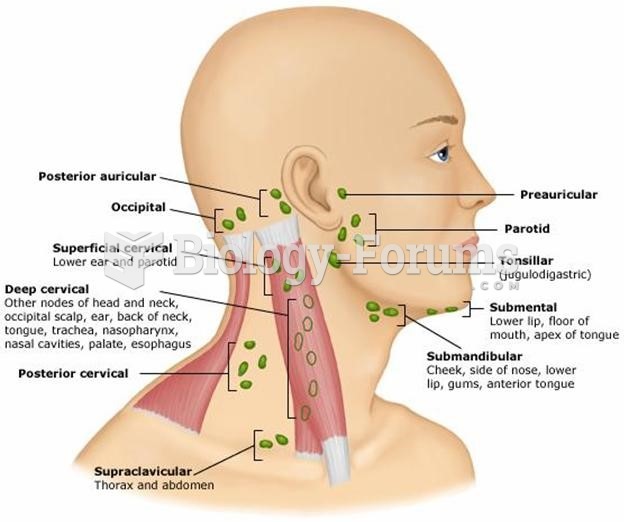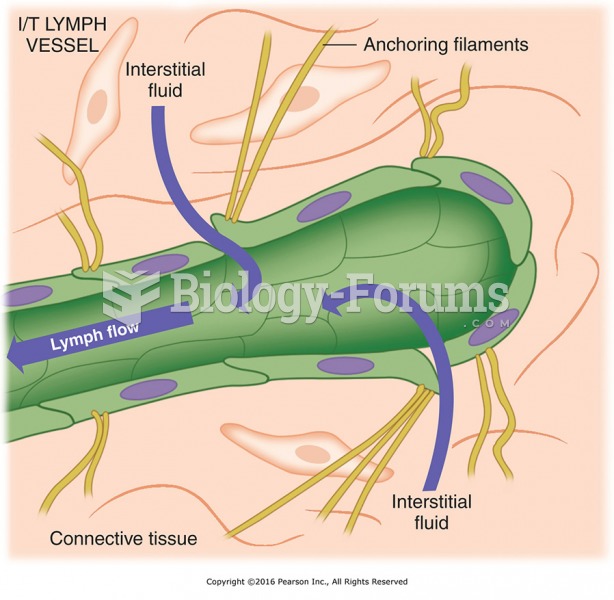|
|
|
People with high total cholesterol have about two times the risk for heart disease as people with ideal levels.
When blood is deoxygenated and flowing back to the heart through the veins, it is dark reddish-blue in color. Blood in the arteries that is oxygenated and flowing out to the body is bright red. Whereas arterial blood comes out in spurts, venous blood flows.
There can actually be a 25-hour time difference between certain locations in the world. The International Date Line passes between the islands of Samoa and American Samoa. It is not a straight line, but "zig-zags" around various island chains. Therefore, Samoa and nearby islands have one date, while American Samoa and nearby islands are one day behind. Daylight saving time is used in some islands, but not in others—further shifting the hours out of sync with natural time.
Aspirin may benefit 11 different cancers, including those of the colon, pancreas, lungs, prostate, breasts, and leukemia.
The longest a person has survived after a heart transplant is 24 years.
 Temperament refers to stable differences in the emotional reactions of different children to similar ...
Temperament refers to stable differences in the emotional reactions of different children to similar ...
 Pulmonary embolism. The purple shaded section shows the area of the lung that is dying from lack of ...
Pulmonary embolism. The purple shaded section shows the area of the lung that is dying from lack of ...





